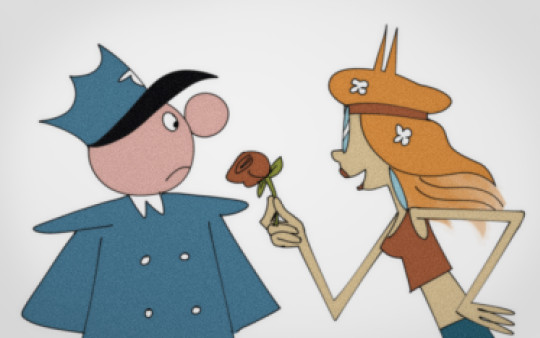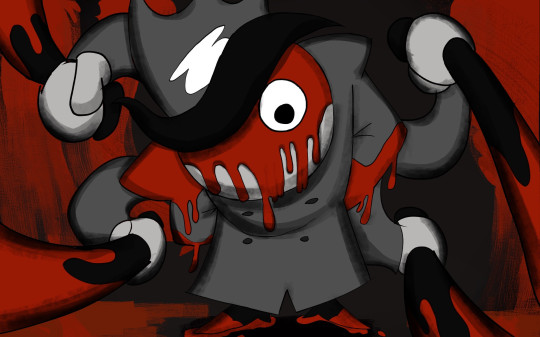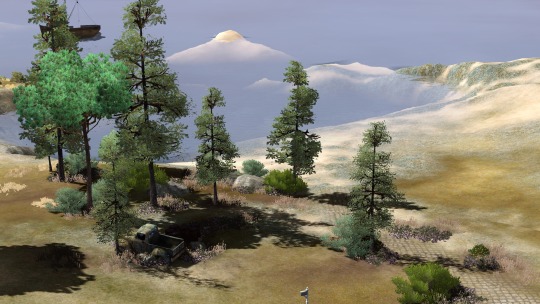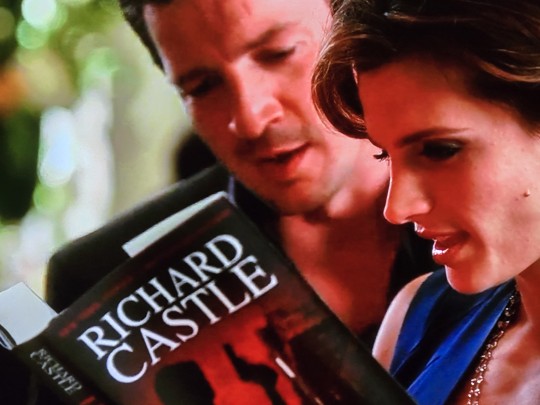#library police
Explore tagged Tumblr posts
Text

You thought you could hone the monster to your beck and call, to chain it in your backyard and keep your hands clean, but now the monster is out of control. It will kill you, your community, your friends, everyone you’ve ever cared about.

148 notes
·
View notes
Text


only like four of milis ruina songs have video art that isnt just the album cover :( but whatever! we ball.
#library of ruina#project moon#angela lor#tommy lor#merry lor#tomerry#artsies#iron lotus and salt/pepper/bieds & thought police are next#if i can figure out who the other song belongs to. lol
64 notes
·
View notes
Text

A.2.4 Are anarchists in favour of “absolute” liberty?
No. Anarchists do not believe that everyone should be able to “do whatever they like,” because some actions invariably involve the denial of the liberty of others.
For example, anarchists do not support the “freedom” to rape, to exploit, or to coerce others. Neither do we tolerate authority. On the contrary, since authority is a threat to liberty, equality, and solidarity (not to mention human dignity), anarchists recognise the need to resist and overthrow it.
The exercise of authority is not freedom. No one has a “right” to rule others. As Malatesta points out, anarchism supports “freedom for everybody … with the only limit of the equal freedom for others; which does not mean … that we recognise, and wish to respect, the ‘freedom’ to exploit, to oppress, to command, which is oppression and certainly not freedom.” [Errico Malatesta: His Life and Ideas, p. 53]
In a capitalist society, resistance to all forms of hierarchical authority is the mark of a free person — be it private (the boss) or public (the state). As Henry David Thoreau pointed out in his essay on “Civil Disobedience” (1847)
“Disobedience is the true foundation of liberty. The obedient must be slaves.”
#faq#anarchy faq#revolution#anarchism#daily posts#communism#anti capitalist#anti capitalism#late stage capitalism#organization#grassroots#grass roots#anarchists#libraries#leftism#social issues#economy#economics#climate change#climate crisis#climate#ecology#anarchy works#environmentalism#environment#solarpunk#anti colonialism#mutual aid#cops#police
174 notes
·
View notes
Text
kevin mcallister gets criticized for his choices so much but like. home alone does such a good job to lay out why he doesn’t do the obvious. the phone lines aren’t working, so he can’t call the police. and even if he could, he wouldn’t, because the movie clearly establishes that he fears the police due to having gotten caught shoplifting and being chased down by a cop (additionally, we as the audience are shown the police’s incompetence and unwillingness to help). he doesn’t get help from his neighbors because none of them are home, and the one neighbor he knows is busy dealing with his own issues. this movie does nothing but lay out chekov’s gun yet every year i see the worst lest media literate takes imaginable. c’mon guys.
#icarus speaks#even while WATCHING my mom was like ‘he could’ve just called the police’ NO!!!! he couldn’t!!!!!#he’s like 8 and he thinks if he calls them he’ll get arrested too!! and he can’t see his family again if he goes to jail!!#kids literally think getting a late library fine is the end of the world he thinks he’s an actual CRIMINAL#like yeah kevin took things a bit far#but the wet bandits CONTINUED to try to break in even after he heavily injured them#like ofc the kids gonna take things to the extreme
374 notes
·
View notes
Text
2002 PSA - Banned Books
#2002#2000s#banned books#read banned books#keep reading#keep thinking#ad council#what if america wasn't america#politicsinthewild#freedom#cherish it#protect it#appreciate it#library#librarian#thought police#imgur#video#audio#what don't they want you to know or think about#card catalog#save our libraries#librarians#eschew ai/chat gpt
20 notes
·
View notes
Text








i'm sorry there's so many pictures, i was just so happy with this area and i wanted to show you guys
#ts3#ts3 world#ts3 scenery#torneskär#still struggling with community lots though#it shouldn't be this hard to build but i think landscaping is more my thing and i although i look a lot at buildings around me constantly#and i think architecture is so interesting#i just seem to hit a wall with building things like libraries and laundromats and police stations#then again i do know how to just build fishing shacks which if you visit an island along the swedish west coast communal services will just#have moved into existing fishing shacks#and stuck a sign on the door#you'll find the supermarket in a red lil fishing shack you know?#so this isn't really about architecture but about making it believable i guess#and i need to figure out how developed the island is#like should it even have the military lot#and the sports arena#i think maybe not#ts3 caw
67 notes
·
View notes
Text
I do think making Santi high commander is a huge leap and I’m not really a fan of the pacing of it all, but on some level it is truly a perfect encapsulation of who he is as a character. I’ve said before that he doesn’t change and his lack of character development fascinates me, and this sort of exemplifies said lack of character development.
Wolfe and Santi have both seen what horrors the library is capable of, they’ve both helped enact those horrors, but they start out with this unwavering loyalty towards it. we see this with Wolfe in Stormcrow (which is fascinating on its own given that he is literally the result of systemic sexual abuse carried out by the library but I digress) and that loyalty gets tested by what happens in Moscow. when we first meet Santi in Stormcrow, he already has the attitude that Wolfe comes to adopt by the story’s end: the library as an institution is broken but fixable if someone can find the right way. may it change.
and Santi, crucially, keeps that view throughout the entire series, without seemingly doing much to act on it. for example, while the creation of a printing press solves a legitimate question of efficiency, it’s also undeniably an act of humanity. the idea that a printing press will fix everything (or at least most of it) is held by a lot of characters in the series. and even when that’s pretty decisively shown to not be true, they still hold onto the hope that it could be a solution even if it’s not the solution. not Santi, though. his relationship to the printing press is “thing that got Wolfe tortured and almost killed but if it’s important to him I guess it’s important to me too”. this holds true for a lot of his “betrayals” of library; it’s for Wolfe and nothing else.
Wolfe, though, eventually arrives at a different conclusion about the library: whether or not it’s always been there is a matter of debate, but there is something horrible at the center of this institution, and it might not be reparable. he’s offered his own huge leap in power with the title of archivist, and he immediately turns it down (again his choice to name Khalila instead is its own post). for a lot of reasons, certainly, but I don’t think it’s much of stretch to read that as at least a partial rejection of the library as an institution.
Santi keeps the position of high commander, and while we do see changes made (particularly with the iron tower), I don’t know how much real military reform he’ll actually be motivated to do. it’s less of “we’ll stop doing atrocities now that I’m in charge” and more of “the atrocities will be justified now that I’m in charge”. what he sees of Rome affects him, certainly, and I do think he genuinely wants to make sure what happened to Wolfe doesn’t happen again, but to what extent?
#solreefspeak#the great library#santi#christopher wolfe#wolfe is certainly not perfect about this but i think he’s at least recognized oh. this might be unfixable actually.#vs santi who’s still on the idea of if the right person is in charge we can fix it#lyndsay faye protagonist coded of him. so close to saying maybe the problem is the institution of the police (garda) itself.#and then stopping just short of that#he’s horrible. spins him around in my microwave.#anyway i don’t think the library or the relationships we’re left with at the end of book 5 are stable and that’s fascinating to me
15 notes
·
View notes
Text
Middle Temple Library's Past Exhibitions: Watchmen, Charlies, Peelers: The Story of Policing
Middle Temple Library's 2023 Summer exhibition looked at the history of policing in London.
The story of policing in London is a mutable and ever-changing one. The earliest recorded effort to establish a formal system of policing can be traced back to the reign of King Edward I in his statute of 1285: The Statute of Winchester (13 Edw. I, St. 2). The statute – often referred to as Watch and Ward – received royal ascent on 8th October 1285. It sought to consolidate the various enduring regulations of peace that had existed from the law of Edgar and Canute, through to William the Conqueror, Henry II and Richard I, and reform the system of the watchmen. The statute enforced the need for maintenance of peace in the City of London by outlining that inhabitants of every district must take it upon themselves to remain vigilant and challenge criminal behaviour. It enshrined that those committing the ‘many evils, as murders, robberies, and manslaughters’ must be taken by the keepers of the peace to a place of confinement and punished only if the offence if proved. This loosely mirrors the law and order system in our society today.
To read more, please see the online version of this exhibition.

The police, wearing Peel’s early uniform, contend with a mob at at Coldbath fields, 1833 from Griffiths, Arthur. Mysteries of police and crime. In three volumes. London: Cassell, 1901-1902.
#library#law library#mtlibrary#inns of court#history#libraries#rare books#books & libraries#london#rarebook#exhibition#library exhibitions#police#london history
16 notes
·
View notes
Text

#gotham scanner#fake scanner posts#fake police scanner#gotham#gotham city#dc comics#wish I could make this stuff up#I also don't know if that's what you call satellite or branch libraries#but we ball
9 notes
·
View notes
Text

Have you ever read the Nikki Heat books by Richard Castle. They have them in the library and for sale. They also have Derek Storm books. I love that the show, actually, published the books that Richard Castle wrote on the TV series. They're not bad. They're a fun read!!!


I, personally, like the Nikki Heat series the best!!
#Castle#Richard Castle#Nathan Fillion#Kate Beckett#stana katic#Nikki Heat#real books#i love that#reading#books#novels#Derek Storm#library#love#happiness#thank you#sharing#joy#beautiful#fun#i love Nathan#TV show#author#detective#12th precinct#Police#crime drama#i like these books#happy#smiling
16 notes
·
View notes
Text

A.2.6 Why is solidarity important to anarchists?
Solidarity, or mutual aid, is a key idea of anarchism. It is the link between the individual and society, the means by which individuals can work together to meet their common interests in an environment that supports and nurtures both liberty and equality. For anarchists, mutual aid is a fundamental feature of human life, a source of both strength and happiness and a fundamental requirement for a fully human existence.
Erich Fromm, noted psychologist and socialist humanist, points out that the “human desire to experience union with others is rooted in the specific conditions of existence that characterise the human species and is one of the strongest motivations of human behaviour.” [To Be or To Have, p.107]
Therefore anarchists consider the desire to form “unions” (to use Max Stirner’s term) with other people to be a natural need. These unions, or associations, must be based on equality and individuality in order to be fully satisfying to those who join them — i.e. they must be organised in an anarchist manner, i.e. voluntary, decentralised, and non-hierarchical.
Solidarity — co-operation between individuals — is necessary for life and is far from a denial of liberty. Solidarity, observed Errico Malatesta, “is the only environment in which Man can express his personality and achieve his optimum development and enjoy the greatest possible wellbeing.” This “coming together of individuals for the wellbeing of all, and of all for the wellbeing of each,” results in “the freedom of each not being limited by, but complemented — indeed finding the necessary raison d’etre in — the freedom of others.” [Anarchy, p. 29] In other words, solidarity and co-operation means treating each other as equals, refusing to treat others as means to an end and creating relationships which support freedom for all rather than a few dominating the many. Emma Goldman reiterated this theme, noting “what wonderful results this unique force of man’s individuality has achieved when strengthened by co-operation with other individualities . .. co-operation — as opposed to internecine strife and struggle — has worked for the survival and evolution of the species… . only mutual aid and voluntary co-operation … can create the basis for a free individual and associational life.” [Red Emma Speaks, p. 118]
Solidarity means associating together as equals in order to satisfy our common interests and needs. Forms of association not based on solidarity (i.e. those based on inequality) will crush the individuality of those subjected to them. As Ret Marut points out, liberty needs solidarity, the recognition of common interests:
“The most noble, pure and true love of mankind is the love of oneself. I want to be free! I hope to be happy! I want to appreciate all the beauties of the world. But my freedom is secured only when all other people around me are free. I can only be happy when all other people around me are happy. I can only be joyful when all the people I see and meet look at the world with joy-filled eyes. And only then can I eat my fill with pure enjoyment when I have the secure knowledge that other people, too, can eat their fill as I do. And for that reason it is a question of my own contentment, only of my own self, when I rebel against every danger which threatens my freedom and my happiness…” [Ret Marut (a.k.a. B. Traven), The BrickBurner magazine quoted by Karl S. Guthke, B. Traven: The life behind the legends, pp. 133–4]
To practice solidarity means that we recognise, as in the slogan of Industrial Workers of the World, that “an injury to one is an injury to all.” Solidarity, therefore, is the means to protect individuality and liberty and so is an expression of self-interest. As Alfie Kohn points out:
“when we think about co-operation… we tend to associate the concept with fuzzy-minded idealism… This may result from confusing co-operation with altruism… Structural co-operation defies the usual egoism/altruism dichotomy. It sets things up so that by helping you I am helping myself at the same time. Even if my motive initially may have been selfish, our fates now are linked. We sink or swim together. Co-operation is a shrewd and highly successful strategy — a pragmatic choice that gets things done at work and at school even more effectively than competition does… There is also good evidence that co-operation is more conductive to psychological health and to liking one another.” [No Contest: The Case Against Competition, p. 7]
And, within a hierarchical society, solidarity is important not only because of the satisfaction it gives us, but also because it is necessary to resist those in power. Malatesta’s words are relevant here:
“the oppressed masses who have never completely resigned themselves to oppress and poverty, and who … show themselves thirsting for justice, freedom and wellbeing, are beginning to understand that they will not be able to achieve their emancipation except by union and solidarity with all the oppressed, with the exploited everywhere in the world.” [Anarchy, p. 33]
By standing together, we can increase our strength and get what we want. Eventually, by organising into groups, we can start to manage our own collective affairs together and so replace the boss once and for all. ”Unions will… multiply the individual’s means and secure his assailed property.” [Max Stirner, The Ego and Its Own, p. 258] By acting in solidarity, we can also replace the current system with one more to our liking: “in union there is strength.” [Alexander Berkman, What is Anarchism?, p. 74]
Solidarity is thus the means by which we can obtain and ensure our own freedom. We agree to work together so that we will not have to work for another. By agreeing to share with each other we increase our options so that we may enjoy more, not less. Mutual aid is in my self-interest — that is, I see that it is to my advantage to reach agreements with others based on mutual respect and social equality; for if I dominate someone, this means that the conditions exist which allow domination, and so in all probability I too will be dominated in turn.
As Max Stirner saw, solidarity is the means by which we ensure that our liberty is strengthened and defended from those in power who want to rule us: “Do you yourself count for nothing then?”, he asks. “Are you bound to let anyone do anything he wants to you? Defend yourself and no one will touch you. If millions of people are behind you, supporting you, then you are a formidable force and you will win without difficulty.” [quoted in Luigi Galleani’s The End of Anarchism?, p. 79 — different translation in The Ego and Its Own, p. 197]
Solidarity, therefore, is important to anarchists because it is the means by which liberty can be created and defended against power. Solidarity is strength and a product of our nature as social beings. However, solidarity should not be confused with “herdism,” which implies passively following a leader. In order to be effective, solidarity must be created by free people, co-operating together as equals. The “big WE” is not solidarity, although the desire for “herdism” is a product of our need for solidarity and union. It is a “solidarity” corrupted by hierarchical society, in which people are conditioned to blindly obey leaders.
#faq#anarchy faq#revolution#anarchism#daily posts#communism#anti capitalist#anti capitalism#late stage capitalism#organization#grassroots#grass roots#anarchists#libraries#leftism#social issues#economy#economics#climate change#climate crisis#climate#ecology#anarchy works#environmentalism#environment#solarpunk#anti colonialism#mutual aid#cops#police
51 notes
·
View notes
Note
Can you draw Francis reading a book then getting bored and eating it :3

5 notes
·
View notes
Text
Take some Cheesehead

I hate hands why can why not just be ●?
#original art#traditional art#lobotomy corporation#chesed lobcorp#chesed#library of ruina#chesed lor#chesed library of ruina#I'm still gonna tag l corp even if that's not the version I drew#Fuck off tag police this is my account I tag how I want
6 notes
·
View notes
Text
All libraries should be open until 11pm. Librarians should be paid well ABOVE a liveable wage.
63 notes
·
View notes
Text
also it might be worth noting: my first exposure to yugioh was actually the original manga, not the 4Kids dub, and I use Japanese names when referring to characters. This is true of GX and 5Ds as well, both of which I watched in Japanese and not English!
#nik speaks.#my parents didn’t police what i read but they were super against me watching anime#so i spent a LOT of time at my local library reading the manga over and over again#didn’t get to watch 5ds and gx until recently but i DID read those manga as well
4 notes
·
View notes
Text
I hate when people more knowledgeable about history than me are somehow less politically informed
#Errr or idk how to put it like I wouldn't call myself all that politically informed either#But like idk I was talking to this girl who was like we need more traffic cops. It is bad there r less cops on the road coz of#Increased awareness of black people being killed in routine traffic stops + other shit that changed during onset of covid#Because now ppl r driving less safely. But we can't just bring back the cops. So we should abolish the police via#Creating more departments for specific things so traffic enforcement should exist independently of what we now consider policing#N she was saying other stuff abt the creation of these departments and I was like. I really don't care for reform unless it#Exists as intermediary to dissolution of entire systems and overhauling of infrastructure.#Like I'm not excited to endorse what you're talking about even on the level of Solving Traffic because the solution should be radically#transforming the infrastructure to be less car-centric and develop better public transportation#N her response was 'well we should do what we can now with what we got' or something n idr#how I responded to that but idk if the thing that makes you uncomfortable and inspired towards change is#more dangerous traffic as opposed to like. The brutalization and fear of that comes w cops.#Then idk I don't really care about your priorities or addressing your concerns. I just cannot bring myself to care.#Because 1. You obviously don't have my concerns as a racialized person who relies on public transportations in mind as urgent#(Which is to me like I don't trust once you get your reforms you'd not just#shrug your shoulders and call it unfortunate whatever issues remain that other people suffer)#2. It is plainly ignorant to think any enforcement of Law Order Safety etc in a white supremist settler colony wouldn't reproduce violence#She was like they should just have tasers not guns and it's like. K people have been killed with tasers.#People have been killed with batons even. Like. Completely wrong focus ig because You're scared of guns?? Idk.#But anyway before that conversation I kinda felt like an idiot compared to her coz when we'd go to the library I'd only want to read comics#& she was only reading non-fiction books like history and politics etc#So it's like her opinions are technically more Well-Informed than mine n it's kinda hard for me to argue coz I just have like. Principles.#~
5 notes
·
View notes